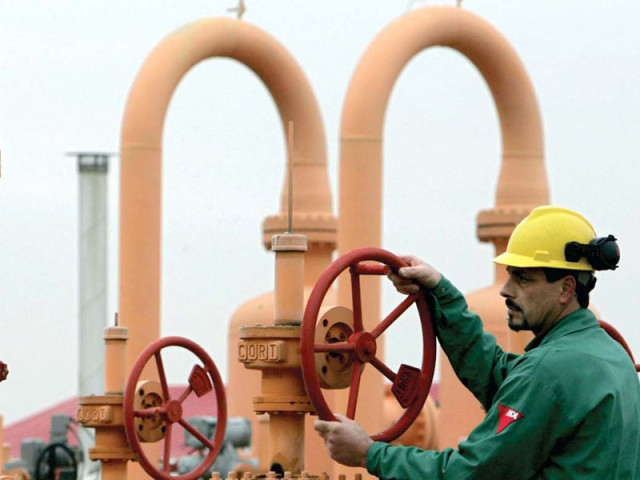Pipeline construction: Regulator objects to Rs2.5b assistance to OMV
Ogra rules require raw gas supplier to bear pipeline cost and not consumers.

The Oil and Gas Regulatory Authority (Ogra) has opposed assistance of Rs2.5 billion to Austrian oil and gas explorer OMV for laying a pipeline for transport of gas from the Latif field, terming the proposal an “illegal act”, sources say.
Earlier, the Ministry of Petroleum and Natural Resources had proposed the assistance to encourage OMV, an operator of Sindh’s Latif gas field jointly owned by Pakistan Petroleum Limited (PPL) and Italy’s ENI, to produce an additional 25 million cubic feet per day (mmcfd) of gas from the field, up from the current 25 mmcfd, at $2.6 per million British thermal unit (mmbtu). The offer came after the company refused to extract more from the field.
At present, 25 mmcfd of gas is supplied to Sawan field for processing, but it has reportedly no further capacity to process.
Under Ogra ordinance, the expenses of a pipeline for supply of raw gas cannot be recovered from consumers (in the form of higher tariffs). In a recent meeting of a committee formed to resolve the matter, Ogra contended that it was the responsibility of the exploration company to lay the pipeline.
On December 1, the petroleum ministry submitted a summary with the Economic Coordination Committee (ECC), seeking approval of the assistance package, but the ECC raised some questions. It was feared that if the assistance was provided, it could set a precedent for other oil and gas exploration companies. The ECC also formed a committee, headed by Planning Commission deputy chairman, with the task to assess economic viability of the project. The committee would also look into the petroleum concession agreement signed with OMV partners.
A senior official of the petroleum ministry told The Express Tribune that the committee was working to resolve the issue, adding gas would be cheaper after laying a 50km pipeline costing Rs2.5 billion when compared with the price of furnace oil.
Ogra, in a meeting of the committee on December 21, argued that purchase of raw gas from Latif producers at an accelerated pace would lead to early exhaustion of the field, which would only benefit the joint venture partners in terms of fast-track payback of investment.
“Pipeline worth Rs2.5 billion to be laid by the gas company may also need to be depreciated on a fast-track basis, depending on the field’s life and the accelerated depletion expenses in such a case may exceed the return on asset,” an Ogra official said.
Ogra said it would adversely affect gas consumers who would have to pay higher tariff for gas from the Latif field.
“Ogra fully supports the Planning Commission deputy chairman’s viewpoint that economic benefit of the project calculated in terms of furnace oil replacement is incorrect,” said Ogra chairman in a letter to the petroleum ministry. In fact, the additional gas would be supplied to highly subsidised domestic and compressed natural gas (CNG) sectors, it said.
“In view of the facts, Ogra maintains that Latif gas field’s accelerated production plan needs to be revisited.”
At present, Latif field is producing 25 mmcfd of gas which will go up to 70 mmcfd in 2013. The field is expected to be completely exhausted in 2022.
Published in The Express Tribune, December 29th, 2011.



















COMMENTS
Comments are moderated and generally will be posted if they are on-topic and not abusive.
For more information, please see our Comments FAQ